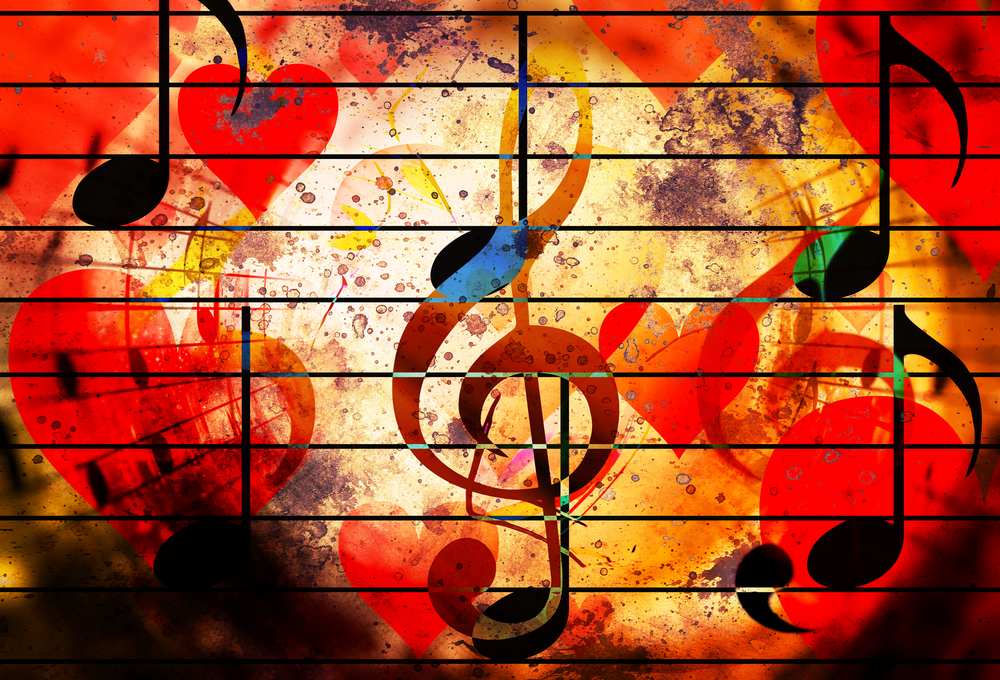Music can remind you of a specific person or time in your life. It can soothe you, energize you, and recent research shows that it has the power to heal you.
Music therapy—when a trained professional uses music interventions to address physical, emotional, cognitive, and social needs of individuals—is a growing field in the U.S. (and around the world). Music therapy has been credited with everything from helping newborns gain weight to helping people recover their speech after a stroke.
It’s not a new field, either. Music therapy has been around since World War I, when community volunteers played music for the wounded. The patients and the nurses noticed a boost in spirits after music was played, an improved outlook, and even less pain. This led to a revelation: music can heal us. Soon after, hospitals were hiring musicians.
HOW IT WORKS; WHO IT HELPS
Music is meditative—the whole brain is stimulated and engaged when you’re listening. From emotion to motor function, creativity to memory, the brain processes music in complex ways. It has the power to shift your mood. It can bring on feelings of comfort and safety. You can forget about your present-day worries. According to Mindfulness Meditation Coach Louise Jensen,“When we listen to music, our brain releases dopamine—a feel-good chemical essential for the healthy functioning of the central nervous system; it has effects on emotion, perception, and movement.” So, music makes us happy. It can also lower blood pressure, reduce your heart rate, and relax your muscles, it’s no wonder that music therapists are in demand in a number of healing environments.
According to the American Music Therapy Association, “Music therapists work in psychiatric hospitals, rehabilitative facilities, medical hospitals, outpatient clinics, day care treatment centers, agencies serving persons with developmental disabilities, community mental health centers, drug and alcohol programs, senior centers, nursing homes, hospice programs, correctional facilities, halfway houses, schools, and private practice.”
It doesn’t matter what style of music is used, either. There is no one-size-fits-all style that’s more therapeutic than others. It’s really a matter of preference, circumstance, and treatment needs (it also helps to have a positive, consistent relationship with the music therapist).
In short, music therapy can improve people’s quality of life.
MUSIC THERAPY HAS THE POWER TO:
• HELP RESTORE SPEECH
Imagine the frustration of not being able to find the words for everyday conversation. Imagine, too, the freedom of remembering words to familiar songs—and the euphoria of realizing the words and lyrics are still there. This isn’t uncommon for stroke survivors experiencing aphasia, a disorder that impairs the ability to process language. Listening to music can help boost stroke recovery by activating the part of the brain associated with memory, motor function, and emotional processing. Music therapy is being used to treat patients with neurological disorders of Parkinson’s disease and multiple sclerosis, as well as people living with brain injuries. After singing phrases often enough, some patients are able to find the words to speak again. Neurologists are excited about this: the research backs the idea that regardless of which part of the brain was damaged, music can help people learn again. Our brains can be rewired.
• AID IN PAIN RELIEF
Listening to music before surgery can take the focus away from fears. According to Joanne V. Loewy, PhD, director of the music therapy program at New York’s Beth Israel Medical Center in an article on WebMD, “There’s a belief that music and pain are processed along the same [nerve] pathways. So, if we have a patient playing or focusing on the music, they won’t feel the pain.” It might not be that people can’t feel the pain, but rather—that they’re distracted from it. For a brief time, the music can take them out of their situation so they can simply focus on the music.
• IMPROVE ASTHMA SYMPTOMS
Music can help asthmatic patients relax so their lungs work more efficiently with medication. There’s evidence, too, that playing wind instruments can help asthmatics monitor their breathing strategies.
• HELP WITH DEMENTIA
Listening to and singing songs from the past can bring out memories associated with those songs; memories that were otherwise locked away. According to Alzheimers.net, “Music requires little to no mental processing, so singing music does not require the cognitive function [missing] in most dementia patients.”
• ASSIST THOSE IN ADDICTION TREATMENT
In the realm of addiction treatment, music therapy—when used in conjunction with talk therapy and medication—can be a highly effective tool. Those who are addicted to drugs or alcohol build up defense mechanisms (rationalizing, denying, lying) in order to hide their addiction and hide from their emotions. The creative nature of music therapy can help addicts alter their thought patterns. And listening to and talking about songs and lyrics can help people explore different emotions and feelings they might not feel comfortable discussing otherwise.
OTHER EXCITING STUDIES
Another exciting new study showed that music therapy reduced the rejection of heart transplants; another study showed that music can speed the rate of physical healing after surgery.
Music is universal—everyone can relate. And it’s doing so much more than entertaining us. It’s changing people, one beat, one rhythm, one song at a time.

Comments are closed.